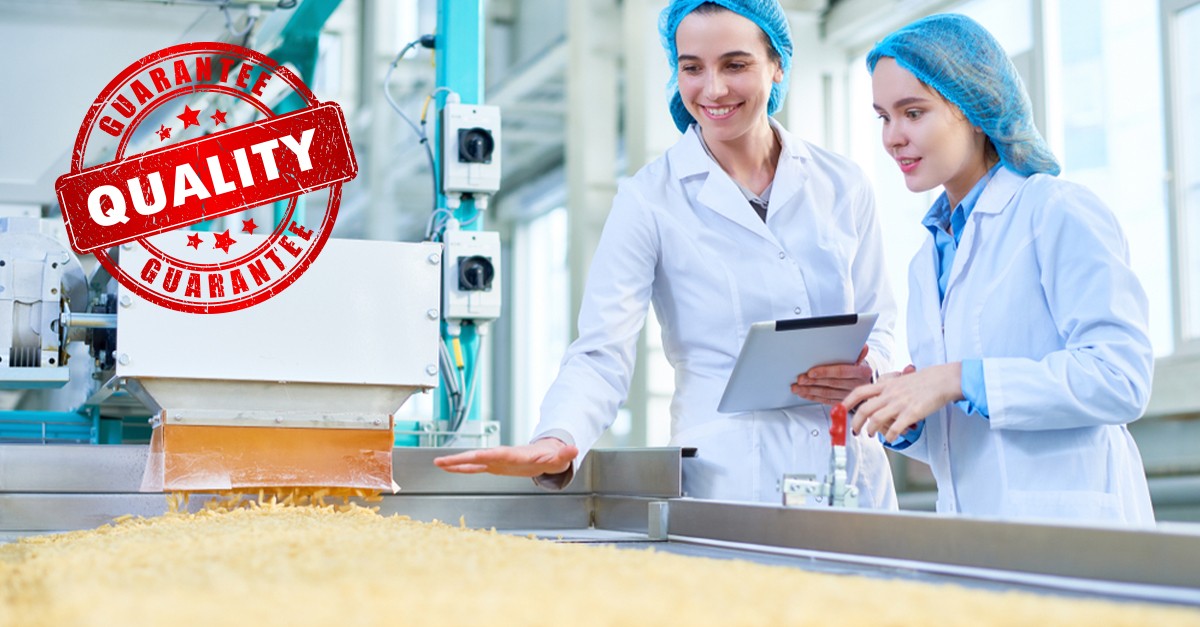Food Processing Monitoring

We are one of the few companies in this region with the expertise to comprehensively monitor food processing in factories. Our major client is the World Food Programme (WFP) Afghanistan, and we extend our services to include the milling of wheat flour, production monitoring of High Energy Biscuits, iodized salt production, and soybean and soy flour processing. Our meticulous process monitoring involves the following detailed activities:
Ensuring Hygiene Standards for Workers and the Workplace
- Regular inspections of personal hygiene practices among workers.
- Monitoring the cleanliness of workstations, equipment, and overall factory environment.
- Implementing sanitation protocols and conducting regular audits to ensure compliance.
Assessing the Condition of Equipment:
- Regular maintenance checks and servicing of machinery to prevent breakdowns.
- Inspecting equipment for wear and tear, ensuring all parts are functioning correctly.
- Keeping detailed records of equipment status and maintenance activities.
Sampling Wheat for Laboratory Tests:
- Collecting wheat samples at various stages of the milling process.
- Sending samples to accredited laboratories for quality and safety testing.
- Analyzing test results to ensure compliance with industry standards.
Controlling the Addition of Vitamins:
- Precisely measuring and adding vitamins to ensure accurate fortification levels.
- Monitoring mixing processes to ensure even distribution of vitamins.
- Conducting spot checks and tests to verify vitamin content.
Conducting Thorough Process Monitoring:
- Continuously overseeing each step of the production process to ensure adherence to protocols.
- Using real-time data collection tools to track process parameters.
- Identifying and addressing any deviations from the standard process promptly.
Taking Samples at Different Intervals During the Process:
- Systematically collecting samples at key stages to monitor quality.
- Analyzing samples for consistency, contamination, and nutritional content.
- Documenting sample results and making necessary adjustments to the process.
Weighing Bags at the Time of Packing:
- Ensuring that each bag is filled to the specified weight.
- Calibrating scales regularly to maintain accuracy.
- Recording weights and ensuring compliance with packaging standards.
Inspecting the Storage Area for the Produced Bags:
- Monitoring storage conditions, including temperature and humidity control.
- Ensuring bags are stored in a clean, pest-free environment.
- Conducting regular checks to prevent spoilage and contamination.
Monitoring the Loading of Bags onto Trucks:
- Supervising the loading process to ensure bags are handled properly.
- Verifying that trucks are clean and suitable for transporting food products.
- Ensuring that loading procedures do not compromise the integrity of the bags.
Sampling During the Loading Process:
- Collecting samples from loaded bags to ensure quality is maintained until dispatch.
- Conducting final checks for any contamination or quality issues.
- Documenting and reporting findings to ensure traceability.
Capturing Photographs at All Stages:
- Taking detailed photographs of each step in the process for documentation.
- Using photos to support reports and provide visual evidence of compliance.
- Archiving photographs for future reference and audits.
Providing a Final Report to the Client on a Daily Basis:
- Compiling detailed daily reports that include observations, test results, and photographs.
- Highlighting any issues encountered and actions taken to resolve them.
- Ensuring transparency and keeping the client informed of the process status.


